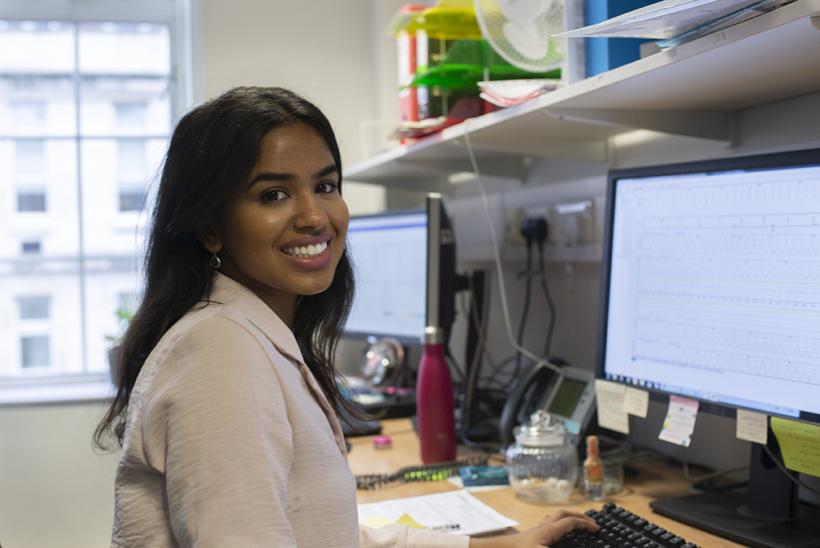International Day of Women and Girls in Science
This International Day of Women and Girls in Science, Clinda, a clinical scientist in the genetics laboratory, shares her story of working in science at Great Ormond Street Hospital (GOSH).
"When I was at university, it seemed like only doctors were able to impact a patient's health. Now, as a clinical scientist, I know that the background, indirect patient care that goes into diagnosis and treatment, shows that our work is also able to have an impact to patient management.
"I'm a clinical scientist in the genetics lab. I'm split across two teams at the moment. One team is in the 100,000 genomes project. Children who have rare diseases have been recruited into this study, often after a long diagnostic odyssey. Their whole genome is being sequenced - it's my job to analyse and determine the significance of the variants, take interesting variants to a multi-disciplinary team meeting, and report them, if required."
Work Experience
“I completed my bachelors in Molecular Genetics. I then wanted to do the Scientists Training Programme (STP), to become a clinical scientist. But I needed some work experience, because even though the entry requirement is only graduate entry-level, the quantity and calibre of applicants makes it hard to get into. You’re up against PhD students and people who have lots of lab experience, so I felt like I needed some work experience to help my application stand out.
"I applied for a placement at GOSH to improve my application. Despite not getting the placement I applied for, GOSH were able to give me an alternative role. The role I did get was fantastic. It was to help out with work in the deafness team including receiving samples, carrying out the technical work in the labs, analysing results and writing reports to send back to the clinician. It was a wealth of laboratory experience. Unfortunately, I didn't get and STP offer that year, but I am convinced that I wouldn't have got as far as interview stage if I hadn't done summer work experience at GOSH."
"The following year, during my Masters in Human Molecular Genetics, there was an opportunity to do a six-month research project at GOSH with the non-invasive prenatal diagnosis team. This further helped my STP application and thanks to this experience, I received an offer for the STP!"
Working at GOSH
"After the STP course, three years later, I returned to GOSH for a fixed-term role that soon changed into a permanent role. I think that GOSH are really good at staff retention and nurturing people through their career path, me being an example. In terms of developing staff, there are a lot of opportunities!
"Another benefit to GOSH is the multi-disciplinary aspect between healthcare professionals and strong academic connections. We have direct input from clinicians regularly. The rich expertise by the Clinical Genetics clinicians downstairs, complement our work very well, enabling optimal and safe patient care.
"The GOSH reputation also appealed to me. GOSH is well-known for its calibre of professionals.There's an ongoing theme of bettering yourself - or what we call Continual Professional Development (CPD) - it's always striving to be the best, to keep learning and take on new challenges. It's allowed me to become involved in lots of exciting projects here."
Clinda's advice
"A big part of the work we do is creating reports which get sent to the clinicians and saved within the patient's notes. If you like being analytical, problem solving, paying attention to detail, with lots of challenges, this job is for you.
"Starting with work experience or placements is also a good thing - here you gain a lot of experience that you later on rely on once you're further up the career ladder."


